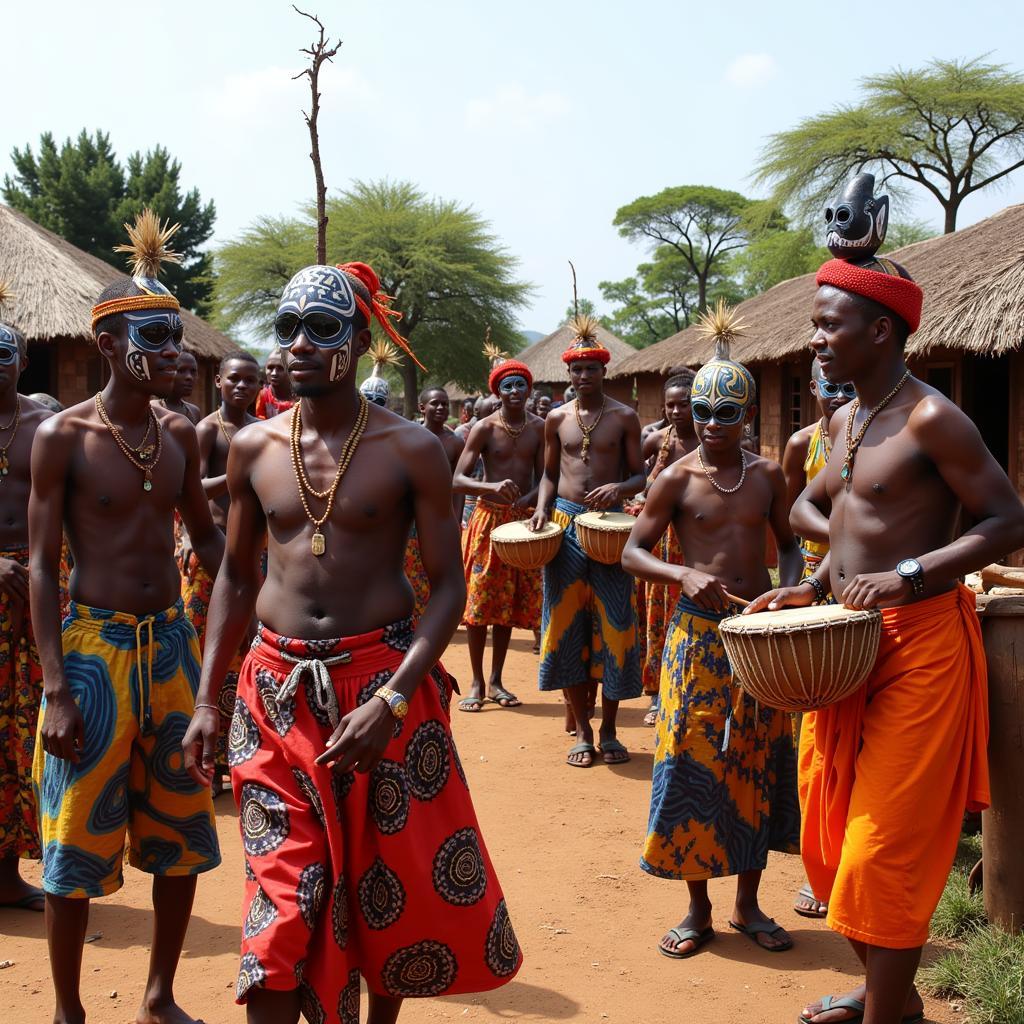The African King of Gold: Mansa Musa and His Golden Reign
Mansa Musa, the African King Of Gold, reigned over the Mali Empire in the 14th century. His immense wealth and lavish pilgrimage to Mecca catapulted him to international fame, solidifying his image as a symbol of African opulence and power. But who was this legendary figure, and how did he shape the history of Africa?
Unraveling the Legend of the African King of Gold
Mansa Musa’s reign, from 1312 to 1337, marked a golden age for the Mali Empire. He inherited a kingdom already rich in gold and salt, but his astute leadership and strategic alliances further expanded its wealth and influence. Mansa Musa’s control over the trans-Saharan trade routes, which funneled gold, salt, and other valuable commodities through his empire, contributed significantly to his immense fortune. His name became synonymous with gold, earning him the enduring title, the African king of gold. He invested heavily in education and infrastructure, building mosques, libraries, and universities that attracted scholars and students from across the Islamic world.
His famous pilgrimage to Mecca in 1324, undertaken with a caravan of thousands and an extravagant display of gold, cemented his image as the African king of gold in the global consciousness. Stories of his generosity and lavish spending spread throughout the Middle East and Europe, sparking curiosity and fascination with the Mali Empire. He distributed so much gold in Cairo that it reportedly caused inflation, highlighting the sheer scale of his wealth.
Mansa Musa: More Than Just the African King of Gold
While his wealth defined his image, Mansa Musa’s legacy extends beyond his riches. He was a devout Muslim and a shrewd political leader who consolidated the Mali Empire’s power and expanded its territorial reach. He established diplomatic ties with other Islamic kingdoms, fostering trade and cultural exchange. Under his rule, Timbuktu became a renowned center of learning, attracting scholars and students from across the Islamic world. The city’s libraries were filled with invaluable manuscripts, solidifying its reputation as an intellectual hub.
He also commissioned the construction of impressive mosques, showcasing his devotion and contributing to the flourishing of Islamic architecture in the region. His investments in education and infrastructure laid the foundation for a thriving society. You can learn about remarkable women from a different context by exploring African American female biographies.
The Lasting Impact of the African King of Gold
Mansa Musa’s reign, though centuries past, continues to resonate. He is remembered not just as the African king of gold, but as a visionary leader who transformed the Mali Empire into a powerful and prosperous kingdom. His story serves as a testament to the rich history and cultural heritage of Africa. For more information on African countries, you can check out resources like African countries G. For interesting facts about wildlife, explore African hunting dog facts or learn about African deer-like species. The importance of natural resources in African culture can also be seen in articles like 100 African shea butter creamy.
Conclusion
Mansa Musa, the African king of gold, remains an iconic figure in African history. His legacy extends beyond his immense wealth, encompassing his contributions to education, infrastructure, and cultural exchange. His story continues to inspire and fascinate, reminding us of the rich history and powerful legacies of the African continent.
FAQ
- Who was Mansa Musa? Mansa Musa was the 14th-century emperor of the Mali Empire, renowned for his incredible wealth.
- Why is he called the “African king of gold”? Mansa Musa controlled vast gold mines and trade routes, making him incredibly wealthy.
- What was significant about his pilgrimage to Mecca? His lavish pilgrimage showcased his wealth to the world and solidified his image as a symbol of African opulence.
- What was Mansa Musa’s impact on Timbuktu? He transformed Timbuktu into a major center of Islamic learning.
- What is Mansa Musa’s lasting legacy? He is remembered as a powerful leader who fostered a golden age for the Mali Empire.
- How did Mansa Musa’s wealth affect Cairo? His generous distribution of gold reportedly caused inflation in Cairo.
- What were some of Mansa Musa’s other accomplishments? He expanded the Mali Empire’s territory, established diplomatic ties, and invested heavily in education and infrastructure.
Common Scenarios and Questions:
- Scenario: You’re researching the history of African empires. Question: How did Mansa Musa contribute to the Mali Empire’s growth?
- Scenario: You’re studying the impact of trade on African kingdoms. Question: How did the trans-Saharan trade routes influence Mansa Musa’s wealth?
- Scenario: You’re interested in the history of Timbuktu. Question: What role did Mansa Musa play in Timbuktu’s development as a center of learning?
Further Exploration:
You might also be interested in learning about other influential African leaders, the impact of Islam on African societies, or the history of gold mining in Africa.
Call to Action:
For further assistance or inquiries, please contact us at Phone: +255768904061, Email: kaka.mag@gmail.com, or visit us at Mbarali DC Mawindi, Kangaga, Tanzania. Our customer service team is available 24/7.



